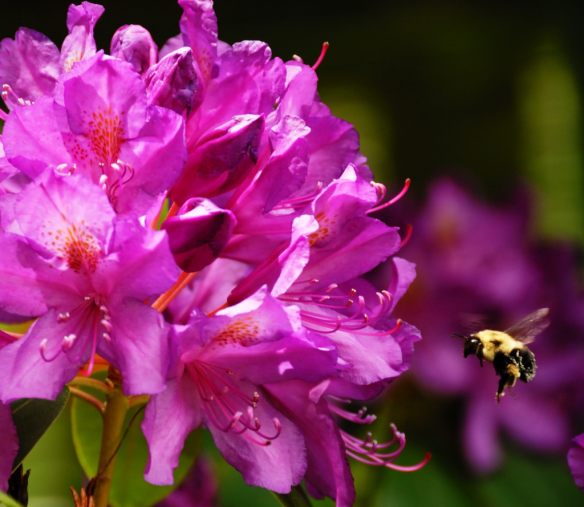Much of the eastern United States has been cultivated or otherwise used in agriculture at one time or another. The land was used roughly by our ancestors, though they may not have known how to use it better. Soil conservation ramped up after 1930, but by then the eastern U.S. had endured up to 300 years of untutored soil use, causing great amounts of erosion. Creating new soil is an act of reparation, requiring dedicated work and patience.
Building soil may be like building families, especially for grandparents. Grandparents often work quietly, at odd moments, maybe in the background.
Building soil starts where a person lives, on home ground. One good method begins with leaves raked into piles, then into an enclosure. An old dog fence works well, lined with corrugated fiberglass to hold the leaves in.
Next comes organic household waste, which can be buried under the leaves. Hollow out a hole in the leaves, dump the organic waste, and dice it with a shovel. Then cover the waste with leaves to help enclose odors and jump-start the decomposition.
Over time bacteria, maybe some insects, and sometimes worms work on the garbage and leaves, creating a fine, rich compost. In Georgia, composting can be easily done on an annual cycle: rake leaves in the fall, add organic waste throughout the winter, spring, and summer (plant materials are best), then remove the completed compost early in the next fall. The fenced area is again ready for new leaves.
Once the compost is ready, the gardener selects plants to favor with the rich organic matter. Young plants always deserve help—they may be more at risk. It is best to cultivate the soil around the plant. Shovel some compost into a wheelbarrow, take it to the plant, and dump it, spreading it and working it in with a rake.
There is not much mental work involved, not much precision or nuance. The plants will likely survive without the mulch, and it’s hard to add too much. During dry periods, the plant may also need a little water. Young plants love the compost. It helps make an environment for new growth, such as dogwood.
or rhododendron.
Mulching around forest trees helps in the same way. More years will be involved in forest growth, and the benefits will be harder to discern. Still, composting and mulching puts a person in touch with the natural rhythms of forest life. It is quiet work, offering an opportunity to listen and watch.
Mulching with compost is a great activity for grandparents and other older people. It requires work, patience, and little expectation of profit or gain. It is a product of simple regard for the welfare of soil and plants. Still, one or two years after mulching a plant, no one will be able to discern the compost. Only the person doing it will know, unless he forgets. It may be like grandparenting—work, patience, no expectation of profit, regard only for the grandchildren. Can anyone discern good grandparenting one or two years later?







